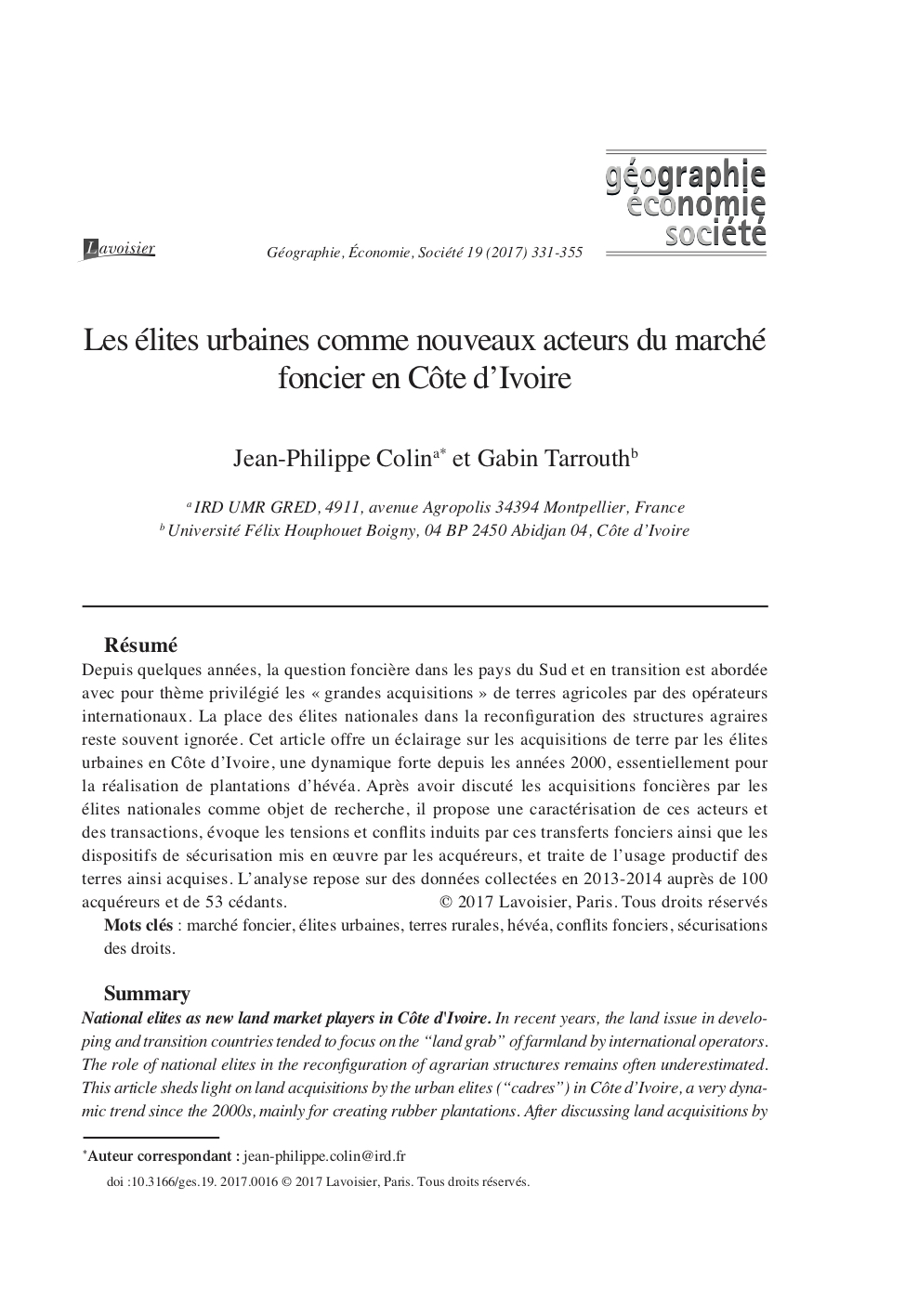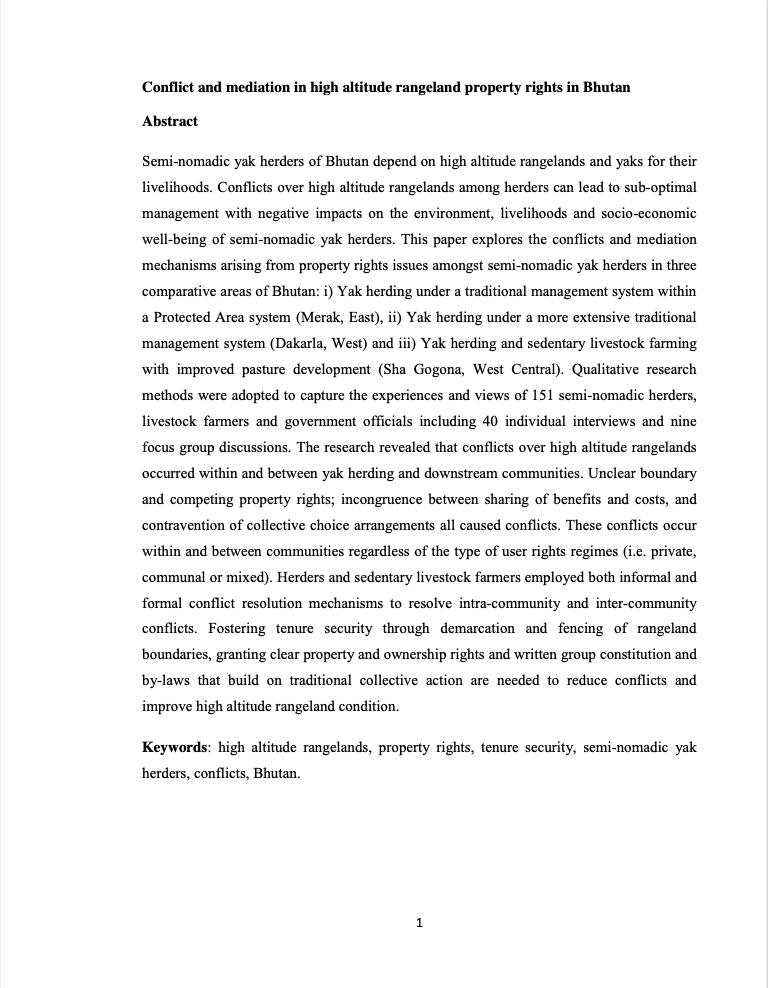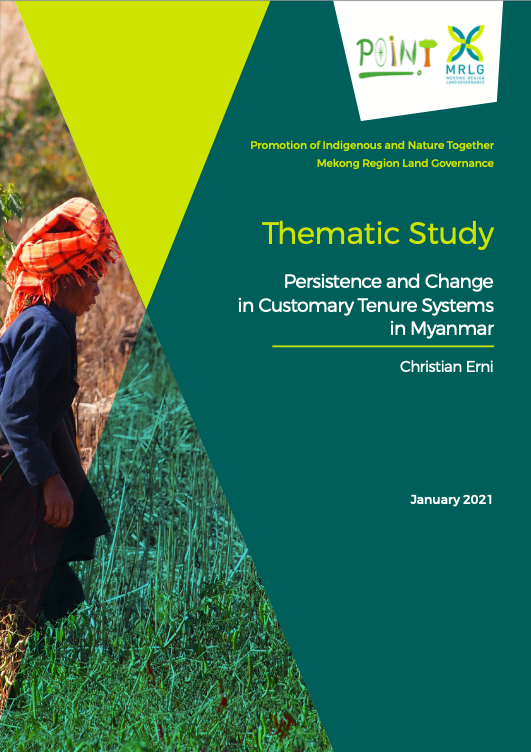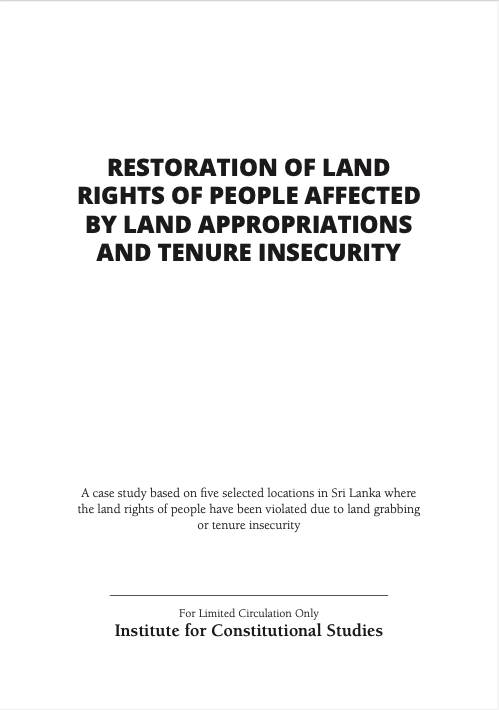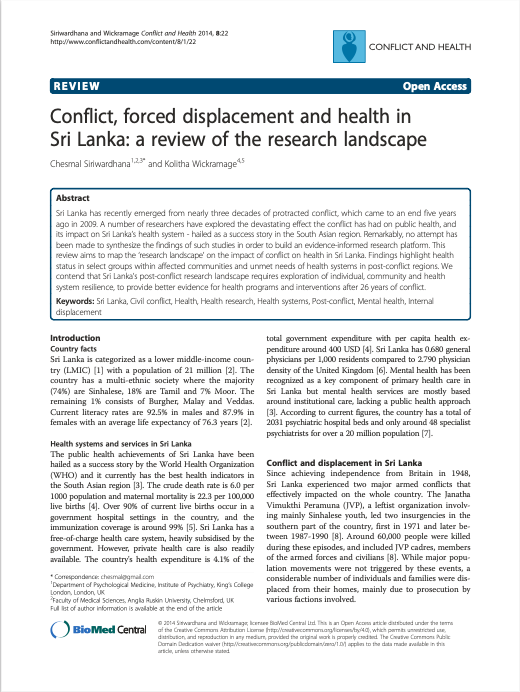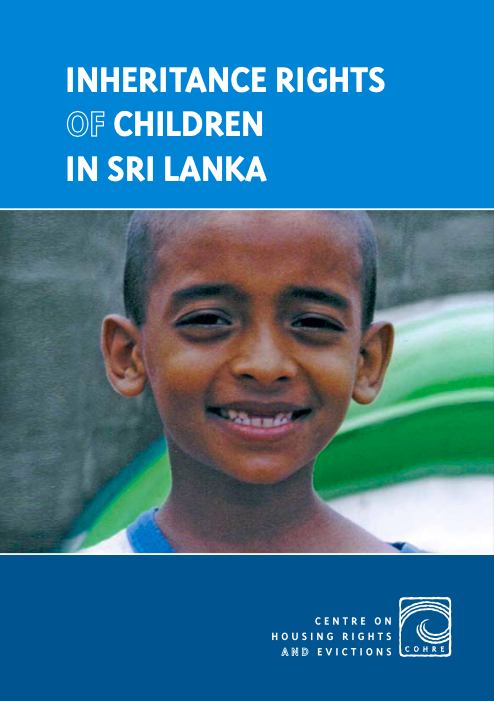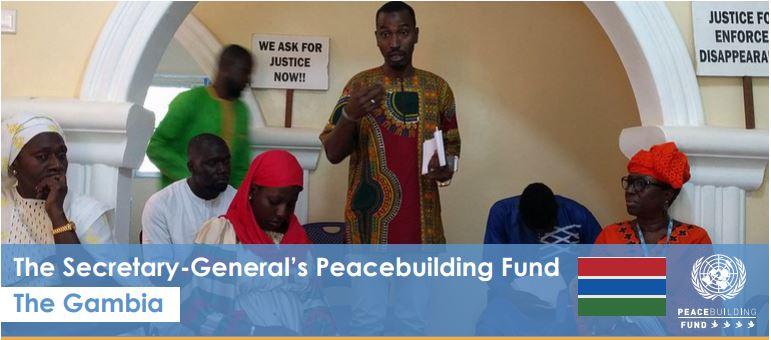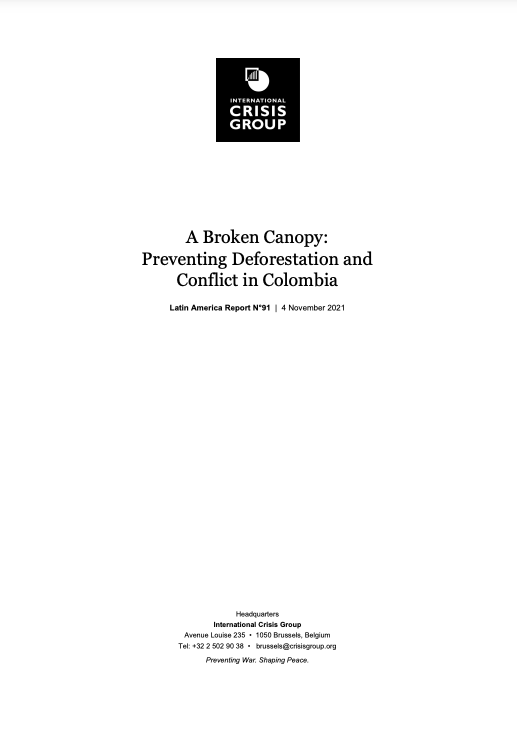Les élites urbaines comme nouveaux acteurs du marché foncier en Côte d’Ivoire
Depuis quelques années, la question foncière dans les pays du Sud et en transition est abordée avec pour thème privilégié les « grandes acquisitions » de terres agricoles par des opérateurs internationaux. La place des élites nationales dans la reconfiguration des structures agraires reste souvent ignorée. Cet article offre un éclairage sur les acquisitions de terre par les élites urbaines en Côte d’Ivoire, une dynamique forte depuis les années 2000, essentiellement pour la réalisation de plantations d’hévéa.

